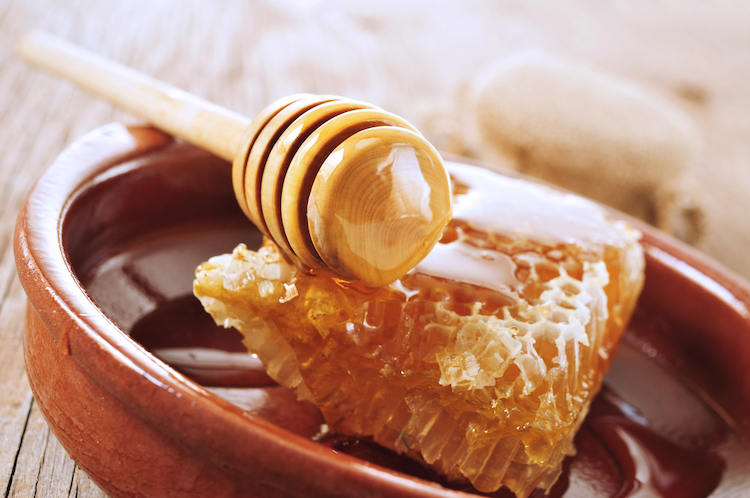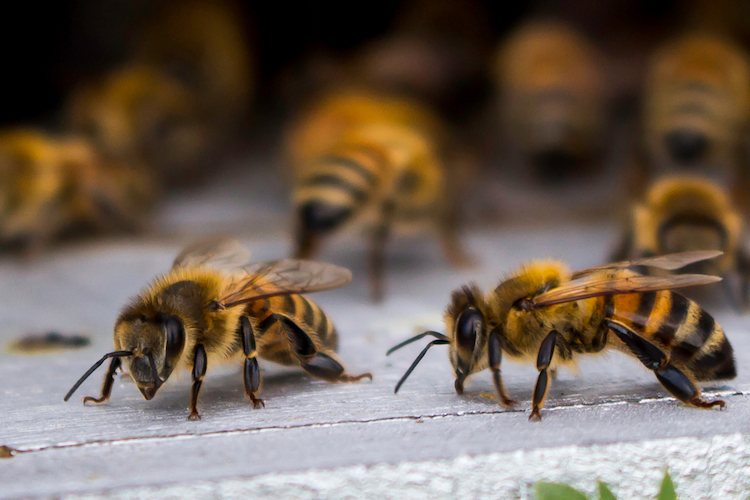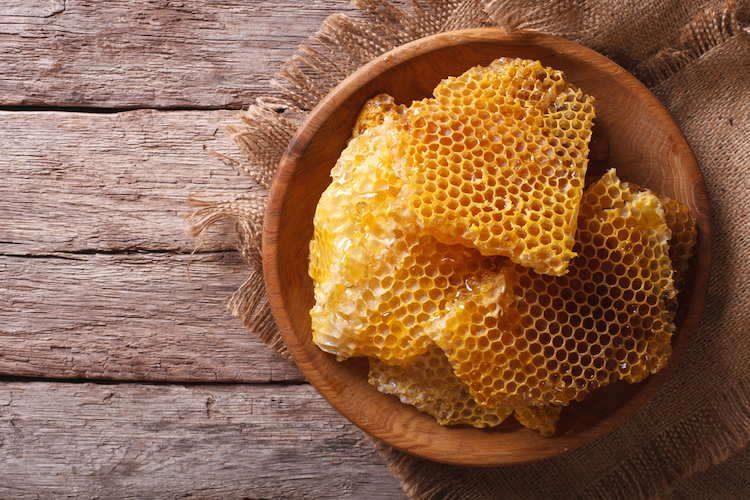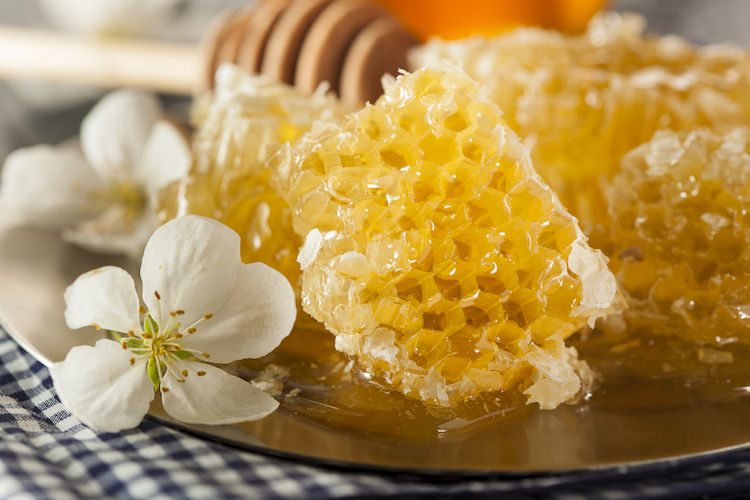The Health Benefits of Manuka Honey
Most people are aware of the “superfood” properties of regular honey – but did you know there is another honey variation that may be even more potent and beneficial? This super-honey is called Manuka honey.
Interested in learning more about this great food? Keep reading. But first, a little background – Manuka honey comes from New Zealand and Australia and is produced by bees that only pollinate flowers from the Manuka bush (also known as the tea tree and jellyfish). The honey produced by these bees winds up darker and has a richer, more distinct flavor than traditional honey.
The benefits of Manuka honey have been known for centuries. It’s been used by cultures throughout history as a tonic to cure digestive issues, treat sore throats, and heal wounds, and it’s also seen used as a sweetener and quick source of energy and calories.

Manuka Honey Nutrition Facts
Honey today isn’t what it used to be. Thanks to industrialization, most honey you buy is essentially hyped-up high fructose corn syrup. But Manuka honey – the stuff with the best health benefits— can be bought online or at specialty health food stores.
But what makes Manuka honey so much better than the traditional stuff? It’s all in the nutritional profile. Manuka honey is up to four times more potent than regular flower honey, and Manuka honey is an even greater source of:
- Amino acids: The building blocks of proteins and muscles.
- B vitamins (thiamin, riboflavin, niacin, pantothenic acid, B6, biotin, folic acid, and B12): The B vitamins play a vital role in cell metabolism and help convert food into fuel.
- Calcium: A vital mineral that helps the contracting and relaxing of arteries and veins, muscle function, and nerve transmission.
- Copper and iron: These help the body form red blood cells and keep blood vessels, nerves, the immune system, and bones healthy.
- Magnesium: A mineral needed for bone health and energy metabolism. Magnesium also triggers activity in hundreds of enzymes and aids in the production of DNA and RNA.
- Manganese: Helps regulate blood sugar and supports your nervous system. It’s also needed to help the body absorb calcium and break down fats.
- Phosphorous: An essential mineral used by the body to grow and repair cells and tissues.
- Potassium: Crucial for proper heart functioning. It’s also very important for normal digestive and muscular function.
- Sodium: Used by your body to control blood pressure and volume. Your body also needs sodium for muscles and nerves to function properly.
- Zinc: Needed for your immune system to work properly, and it also plays a role in cell division and growth, wound healing, and breaking down carbohydrates.
All of these increased benefits of Manuka honey are called the Unique Manuka Factor (UMF).
The Unique Manuka Factor
In the early 1980s, researchers in New Zealand found that Manuka honey is much more potent than regular flower honey. The concentration of enzymes is much higher, and this creates hydrogen peroxide, an effective antibacterial agent.
All honey has hydrogen peroxide to some extent, and there are variations of Manuka honey that are also abundant in hydrogen peroxide (along with methylglyoxal and dihydroxyacetone).
The Unique Manuka Factor (UMF) is a standard for identifying and grading natural, unadulterated Manuka honey that has this special, potent blend of antibacterials. UMF is a way for you to ensure that the Manuka honey you’re buying is of the highest medicinal quality.
To find out what the UMF is for your Manuka honey, look for the ranking when you buy it. The UMF scale rates the potency of Manuka honey based on how much methylglyoxal (MG) it contains.
The minimum rating for Manuka honey is UMF5 – this level isn’t considered therapeutic. A UMF10 rating or higher is considered therapeutic, and these products can carry the UMF Manuka honey labeling. UMF ratings between 10 and 15 are considered useful, and anything over 16 is considered “superior quality.”
To ensure you’re getting genuine UMF Manuka honey, you should also look for these things:
- A UMF trademark is clearly visible on the container;
- A label from a New Zealand-licensed UMF company;
- The UMF company’s name and license number; and
- The UMF rating should be listed as 5 or higher.
If your Manuka honey is labeled without a UMF number, then there’s a good chance you don’t have genuine UMF Manuka honey. Buyer beware!

Manuka Honey Health Benefits
There have always been people who espouse the health benefits of Manuka honey. But only in recent years, as studies and research back up these folk remedies and uses, has Manuka honey been accepted as mainstream. Some of the most important health benefits of Manuka honey are that:
- Manuka honey’s antibacterial component sets it apart from other honey. Its activity is stable, and it doesn’t lose potency when exposed to heat, light, or being diluted.
- Manuka honey is effective against a range of bacterial problems. Manuka honey is especially beneficial for your digestive system. It’s great for combating Helicobacter pylori (aka H. pylori, which causes stomach ulcers) and E. coli, along with reducing acid reflux.
- It’s also been recently discovered that Manuka honey naturally down-regulates the genes of MRSA bacteria. This discovery has led to the use of Manuka honey as a topical antiseptic to reduce the chances of an MRSA infection.
- Manuka honey is a gentle antimicrobial that can help reduce acne and eczema. Simply apply the honey on acne- and eczema-affected areas and gently wash off after 3 to 5 minutes. Repeat every day or two for the best outcome.
- Research trials have indicated that Manuka honey can heal wounds, burns, and skin ulcers, and it’s also used as a wound dressing for improved healing.
- It limits and even stops the growth of bacteria. It’s especially useful for combating strep throat and other sore throat problems. It’s also being used to heal and reduce inflammation of the throat after chemotherapy treatments.
- Although not proven, there are plenty of anecdotes of people getting relief from allergies and sinusitis after Manuka honey usage.
Possible Side Effects of Manuka Honey Usage
While Manuka appears to be generally safe, it could cause issues for you if:
- You have an allergy to bees or honey (in which case, consult your allergy specialist before using).
- You have diabetes or need to keep your blood sugars in check.
- You’re undergoing cancer treatments. There are certain chemotherapy drugs that could cause interactions. Discuss with your doctor about adding Manuka honey into your diet or treatment routine.
If you have any adverse reactions, contact your healthcare provider. If anaphylaxis occurs, call 911 and seek medical treatment immediately.

How to Take Manuka Honey
Manuka honey can be used topically or as a food, just as you would with regular honey. To see the greatest benefits, start with a 1-2 tablespoon dose of honey every day. You can eat it straight from a spoon, add it to a healthy herbal tea, or even put it in coffee, and it’s especially great over yogurt and blueberries.
Another option is to use it as a syrup on toast or pancakes – but watch out if you’re monitoring your carb count or blood sugar, as Manuka honey can make your blood glucose rise (but not nearly as sharply as regular sugar).
To add an extra boost of antioxidants and immune-boosting power to your tea, drop in a teaspoon of cinnamon along with your Manuka honey. Research suggests that this combination of antimicrobial properties in Manuka and cinnamon, along with the tea, can help you recover from a sore throat or help prevent them to begin with.
There’s also evidence that taking Manuka honey orally is good for mouth health; it can help prevent gum disease and reduce plaque buildup. Studies show that Manuka honey worked as well as a common antimicrobial mouthwash solution and is better than xylitol chewing gum for preventing gum disease.
Manuka can also be used on your skin to treat minor burns, cuts, and bug bites. The antibacterial nature of Manuka makes it a great dressing for these types of wounds and for fighting infections.

Summary
Manuka honey has been known to have healing properties for centuries, but only recently have the benefits been made popular globally. If you want to add a natural antibacterial and antimicrobial compound to your diet, consider Manuka honey.
The health and beauty benefits are too great to pass up – but always make sure you’re getting the good stuff. Look for Manuka honey with a UMF10 or higher rating, with a UMF15+ being superior. One thing to take note of, though, is that if you’re allergic to bees (or honey) or need to seriously control your blood sugar, talk with your doctor or natural care provider first.
